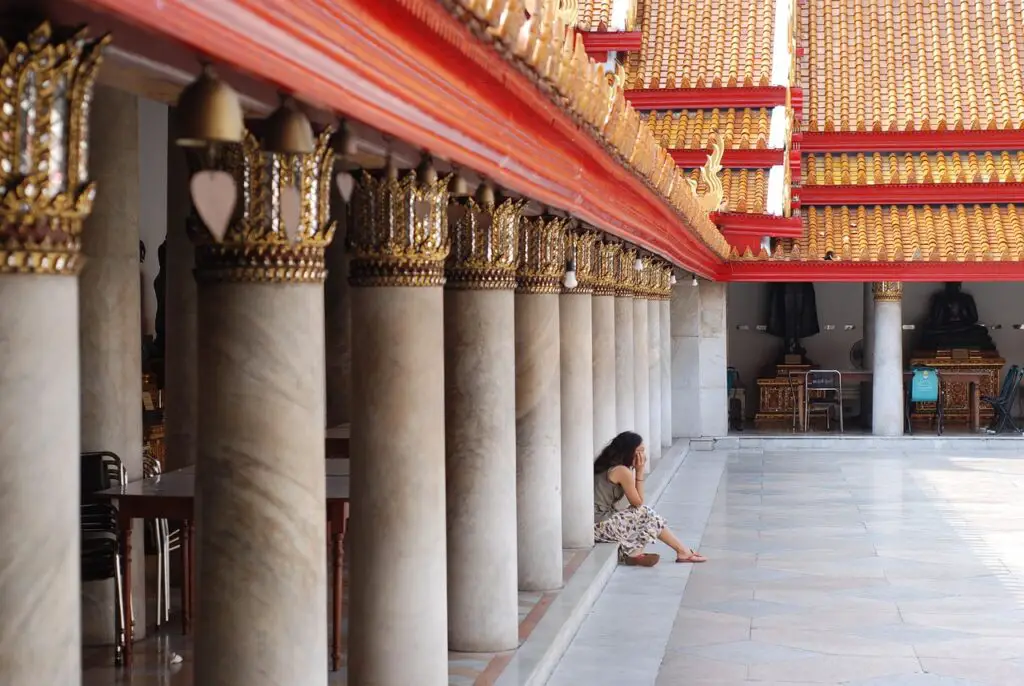After two years of working remotely from various corners of Asia, I’ve experienced the highs and lows of the digital nomad lifestyle. From bustling coworking spaces in Bangkok to serene cafes in Bali, this journey has taught me invaluable lessons about work, life, and adapting to new environments. Here are the 10 most significant lessons I’ve learned, each shaped by the unique challenges and opportunities of remote work in Asia.
1. Reliable Internet Is Your Lifeline
When I first started working remotely in Asia, I underestimated the importance of consistent, high-speed internet. In cities like Singapore and Tokyo, connectivity is rarely an issue, but in more rural areas or less developed regions, it can be a gamble. I once tried to join a critical client call from a charming cafe in rural Vietnam, only to have the connection drop repeatedly, leaving me scrambling to find a backup.
Lesson: Always research internet reliability before settling in a new location. Invest in a local SIM card with a robust data plan or a portable Wi-Fi device. Coworking spaces are often a safer bet than cafes for important meetings. For example, in Chiang Mai, Thailand, hubs like Punspace offer reliable internet and a professional environment. Check sites like Speedtest.net to gauge connectivity in potential destinations, and always have a backup plan, like tethering your phone or identifying nearby coworking spaces.
2. Time Zone Management Is a Skill
Working across time zones is one of the biggest challenges for remote workers in Asia. My team was based in the U.S., meaning I often had to take calls at midnight or early morning in places like Malaysia or Indonesia. Initially, I struggled to balance work hours with a semblance of a normal life, often sacrificing sleep or social plans.
Lesson: Master time zone coordination early. Tools like World Time Buddy or Google Calendar’s time zone feature are lifesavers for scheduling. Communicate clearly with your team about your availability, and if possible, negotiate a schedule that allows for some overlap without disrupting your life. I found that blocking off specific hours for deep work during my peak productivity times (usually mornings in Asia) and reserving evenings for calls worked best.
3. Cultural Adaptability Enhances Productivity
Asia is a mosaic of cultures, and each country has its own work etiquette and social norms. In Japan, for instance, punctuality and formality are paramount, while in Thailand, a more relaxed approach prevails. I once made the mistake of being overly casual in a virtual meeting with a Japanese client, which didn’t land well.
Lesson: Take time to understand the cultural context of the country you’re in, especially if you’re collaborating with local clients or teams. Small gestures, like learning basic greetings or respecting local holidays, go a long way. For example, in Indonesia, being mindful of Ramadan schedules can help you plan meetings respectfully. This adaptability not only fosters better relationships but also makes you feel more integrated into your temporary home.
4. Coworking Spaces Are Worth the Investment
While it’s tempting to work from cafes or your accommodation to save money, I quickly realized that coworking spaces offer unmatched value. In cities like Bali and Ho Chi Minh City, spaces like Hubud or Work In Progress provide not only reliable internet but also a community of like-minded professionals. The networking opportunities and structured environment boosted my productivity significantly.
Lesson: Budget for coworking spaces, especially for long-term stays. They’re often more cost-effective than you think, with monthly passes in places like Bangkok costing as little as $100-$200. Research spaces on platforms like Coworker.com to find ones with good reviews and amenities like ergonomic chairs or meeting rooms. The sense of community can also combat the isolation that sometimes comes with remote work.
5. Work-Life Balance Requires Intentional Boundaries
The freedom of remote work in Asia can blur the lines between work and life. In places like Bali, where beaches and nightlife beckon, it’s easy to let work spill into personal time or vice versa. I once spent an entire “workday” exploring temples in Chiang Mai, only to scramble to meet deadlines late at night.
Lesson: Set clear boundaries to protect both your work and personal life. Create a dedicated workspace, even if it’s just a corner of your apartment, and stick to a schedule. Tools like Toggl Track can help you monitor how you’re spending your time. I also learned to say no to spontaneous plans during work hours and to schedule personal activities as deliberately as work tasks.
6. Local Cost of Living Can Be a Game-Changer
One of the biggest draws of working remotely in Asia is the lower cost of living compared to Western countries. In places like Vietnam or Thailand, I could live comfortably on $1,000-$1,500 a month, including rent, food, and occasional travel. However, costs in cities like Singapore or Hong Kong can rival those in New York or London.
Lesson: Research the cost of living before choosing a base. Sites like Numbeo provide detailed breakdowns of expenses by city. Factor in hidden costs like visas, health insurance, and transportation. For example, a one-month tourist visa in Thailand is relatively easy to obtain, but overstaying can lead to fines. Budgeting wisely allows you to stretch your income and enjoy the perks of life in Asia.
7. Health and Wellness Are Non-Negotiable
The nomadic lifestyle can take a toll on your physical and mental health if you’re not proactive. Long hours at a laptop, irregular sleep due to time zone differences, and the temptation of street food can lead to burnout or health issues. I learned this the hard way after a bout of food poisoning in Cambodia disrupted my work for a week.
Lesson: Prioritize health by maintaining a routine that includes exercise, balanced meals, and rest. Many Asian cities have affordable gyms or yoga studios—Bali, for instance, is a hub for wellness with places like Yoga Barn. Invest in travel health insurance (I used SafetyWing) to cover unexpected medical needs. Mental health is equally important, so schedule downtime and consider apps like Headspace for mindfulness practices.
8. Building a Community Combats Loneliness
Remote work can be isolating, especially when you’re far from home and navigating new cultures. In my first few months, I felt lonely in places like Kuala Lumpur, where I didn’t know anyone. Joining expat groups or digital nomad communities changed that, introducing me to people who became both friends and professional contacts.
Lesson: Actively seek out community. Platforms like Meetup or Facebook groups for digital nomads (e.g., “Digital Nomads Chiang Mai”) are great starting points. Attend local events, workshops, or coworking space meetups to build connections. In smaller communities, like Ubud in Bali, word-of-mouth introductions often lead to lasting friendships. These networks provide both social support and professional opportunities.
9. Language Barriers Are Opportunities to Learn
While English is widely spoken in many Asian cities, language barriers can still pose challenges, especially in rural areas or when dealing with local services. I struggled to communicate with landlords in Vietnam until I learned basic phrases, which made negotiations smoother and more respectful.
Lesson: Embrace language learning as part of the experience. Apps like Duolingo or local language classes can help you pick up key phrases. Even basic proficiency in languages like Thai, Vietnamese, or Bahasa Indonesia can enhance your daily life and work interactions. Locals appreciate the effort, and it opens doors to deeper cultural understanding.
10. Flexibility Is Your Greatest Asset
The unpredictability of life in Asia—whether it’s a sudden monsoon in the Philippines or a visa issue in Indonesia—taught me that flexibility is crucial. Plans change, and the ability to adapt without losing focus on work is what makes remote work sustainable. I once had to relocate from Laos to Thailand due to unexpected visa complications, but being prepared allowed me to pivot quickly.
Lesson: Build flexibility into your plans. Keep a buffer in your schedule and budget for unexpected disruptions. Have a “Plan B” for critical tasks, like a secondary work location or a portable power bank for outages. Embracing adaptability not only reduces stress but also makes you a more resilient remote worker.
Conclusion
Two years as a remote worker in Asia have been transformative, blending professional growth with personal adventure.
These lessons—ranging from practical skills like internet management to personal growth through cultural adaptability—have shaped me into a more effective and balanced professional. Whether you’re considering the digital nomad life or already navigating it, these insights can help you thrive in Asia’s dynamic landscape. The key is to approach challenges with curiosity, preparation, and an open mind, letting the journey teach you as much as you bring to it.














